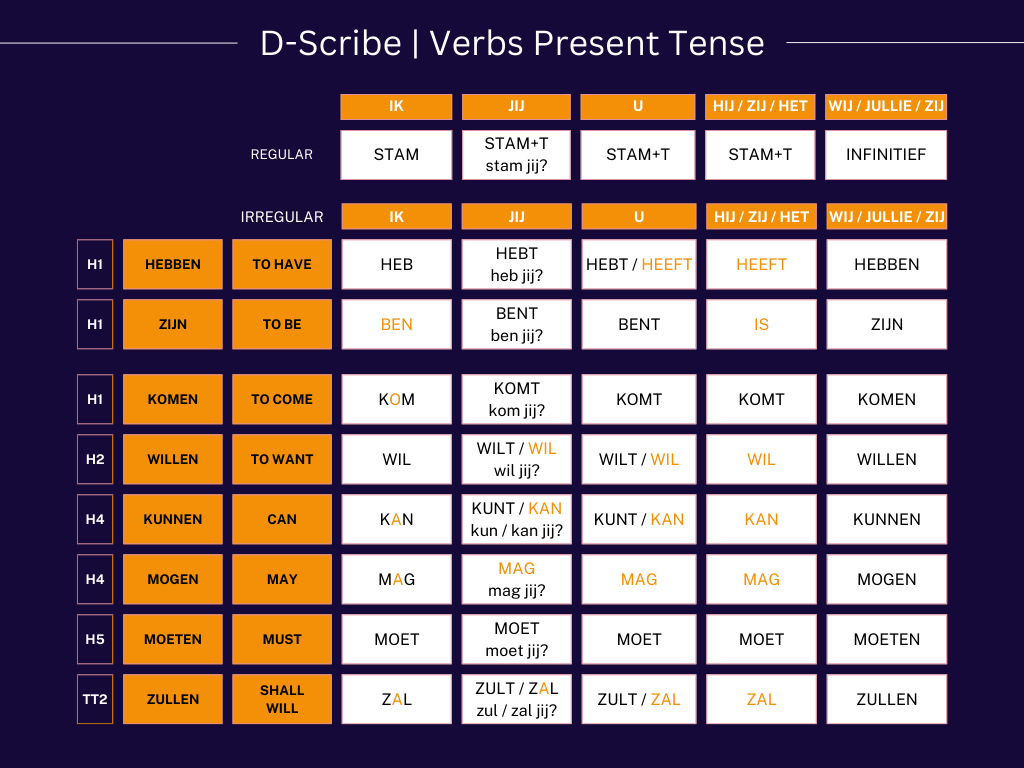- Present tense -
In course A1.1, you learn how to conjugate verbs in present tense. Follow these rules, and you'll already sound pretty fluent.
Irregular verbs
However, there are some irregular verbs. Luckily, there are only 7 of them in present tense:
- hebben - to have
- zijn - to be
- komen - to come
- willen - to want
- kunnen - can / to be able to
- mogen - may / to be allowed to
- zullen - shall / will
Below is a clear overview of these verbs and their conjugations. I've also indicated in what chapter (Hoofdstuk (H) or TaalTalent 2 (TT2) we practice this verb.

2 verbs sentence
Perfectum: hebben, zijn
Sometimes, we use two verbs in one sentence. For example, when we talk in the present perfect tense (perfectum), we use a version of hebben or zijn + participle.
- Mijn zus is vorige week naar Madrid geweest.
(My sister went to Madrid last week.) - Ze heeft daar lekkere tapas gegeten.
(Ze ate delicous tapas there.)
Modal verbs: willen, kunnen, mogen, moeten, zullen
You also often get two verbs in one sentence when using a modal verb. If a phrase contains a modal verb (willen, kunnen, mogen, moeten, zullen), the second verb is in infinitive.
- Haar kinderen moeten in Nederland vroeg slapen.
(Her children have to sleep early in the Netherlands.) - Maar ze willen tot laat in de avond wakkerblijven.
(But they want to stay awake until late in the evening.)
Infinitief: gaan, komen, blijven, laten, zien, horen
In some cases, you need to use two verbs without a modal verb, such as: gaan, komen, blijven, laten, zien, horen.
- De vader laat de kinderen soms een film kiezen.
(The father sometimes lets the children choose a film.) - Dan blijven ze beneden op de bank zitten.
(Then they stay downstairs sitting on the couch
Te + infinitief: other verbs
At our intermediate couses, we also learn when to use 'te' before the infinitive. This little word appears when the first verb isn't one of the verbs mentioned before.
- Hij probeert op zondagochtend uit te slapen.
(He tries to sleep in on Sunday morning.) - Maar de kinderen beginnen al om 7 uur te spelen.
(But the children already start playing at 7 o'clock.)